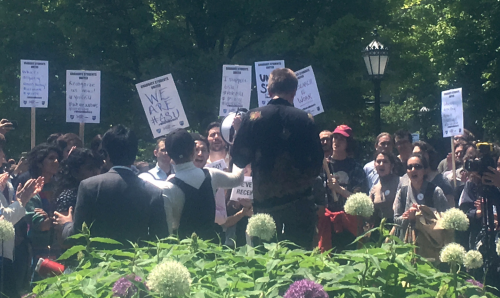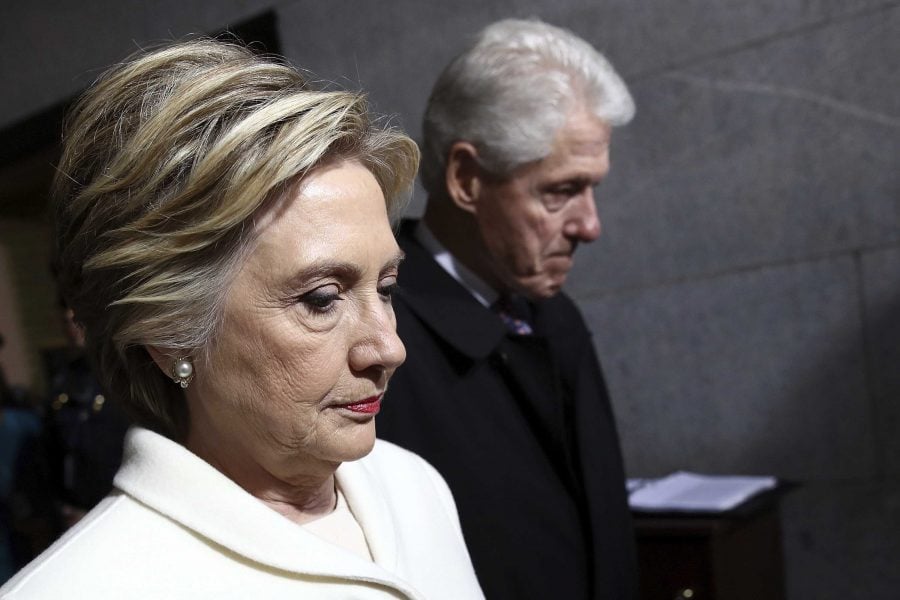A crowd of graduate and undergraduate students collected on the main quad at the University of Chicago’s campus on Thursday May 25. Speckled with faculty members, the mass uniformly cheered for one thing: unionization.
Graduate Students United (GSU) was founded 10 years ago for the purpose of unionizing. Members include graduate students in their master’s and P.h.D. programs at the University of Chicago. Unionizing would hold the university accountable for paying salaries and providing benefits appropriate to the role many graduate student workers have on campus.
On May 8, the American Federation of Teachers (AFT) and the American Association of University Professors (AAUP) filed a petition with the National Labor Relations Board (NLRB) seeking to represent GSU.
However, while the rally held by GSU garnered some student and faculty attention and support, it focused specifically on the university’s administration.
Both graduate and undergraduate student workers on campus feel underappreciated and underrepresented by university officials.
“By the administration we’re told to sit down, shut up, and we’ll handle it, and they never handle it,” P.h.D. student Cody Jones said. “They increase our fees, they don’t increase our stipends. We’re barely making enough to live on. Our health care is terrible. We need help, and the only way to help is to be a union, to have legal recognition.”

The Dean of Students Michael Rasmussen posted to the University of Chicago Provost website the day of the rally that the NLRB hearing for GSU is “proceeding fairly.”
In the University’s Statement of Positions filed with the NLRB, the university contends its graduate student workers are not “employees” according to the the National Labor Relations Act, NLRA.
Part-time professor at University of Chicago, Andrew Yale disagrees.
“The cornerstone of the issue is whether graduate employees are workers. And in so far as graduate students teach, assist in teaching, assist in research, they provide a service in exchange for a wage,” Yale said. “They’re common law employees by the definition that’s accepted in the (NLRA).”
According to the statement, University of Chicago disagrees with the NLRB’s ruling Columbia University students are employees. It lists ways in which its graduate workers differentiate from the workers deemed “employees” at Columbia, including: students who teach at University of Chicago do not face corrective counseling or removal for poor teaching performances.
“It’s our position that these individuals are students and not employees of the University in any way,” Zachary Fasman, partner of Proskauer law firm in the labor and employment law department, which represents the university in this case, said.
“I think it’s really important graduate students have a collective voice in treatment by the university and our relationship to the university,” graduate student worker and member of GSU Sam Lasman said, “(…) that our work be recognized as the work it is, and that we be accorded the value by administration that we know that we bring to the university.”
In addition to members of GSU, another student organization seeking to unionize made an appearance at the rally. The Student Library Employees Union (SLEU) began its reach toward unionization in January 2017 with the help of local labor union, Teamsters Local 743. Sophomore Anjali Dhillon is a co-coordinator of the campaign. SLEU consists of primarily undergraduate students, but also includes some graduate students who all work in the library part-time.
Members of SLEU are seeking three things: higher wages, more control over scheduling, and outside representation to be better protected against workplace violations.
“These are positions, these are jobs that students depend on for security and stability so that they can even be students,” Anjali said. “They need a steady income so that they can fund education they’re here for, so it’s unfair to say that this is the job as a library worker, take it or leave it. We just want student voices to be represented in this work so that library work can be fairly represented by students regardless of their income status, their gender, class or race.”
Another member of SLEU showed up to the rally on the quad to support some of his favorite teachers over the years.
Another member of SLEU showed up to the rally on the quad to support some of his favorite teachers over the years.
“Some of my favorite teachers at this university have been graduate students, and I know how hard grad students work and I think they deserve better pay, better benefits, they shouldn’t have to pay exorbitant costs for health care,” undergraduate student Michael Weinrib said.
Dean of Social Sciences David Nirenberg agrees with the university that graduate student workers aren’t employees. As a witness in an NLRB hearing that occurred May 19, Nirenberg said he doesn’t experience a relieved workload when his graduate students grade his papers:
“Well, in my experience (…) it doesn’t help the faculty member because it’s more work to make sure that the – that your collaborator knows what – what you think as the person in charge of the class is important and is grading in a way that is consistent and reflects what you’re trying to communicate. So, that in itself involves a large amount of effort. And so I would say that from my point of view, especially in a class of 19, having someone grading is not a relief to me,” Nirenberg said.
Nirenberg’s comments served only to fuel the student organizers. And the beautiful weather may have helped the positive turnout, which Weinrib says makes him feel powerful.
“It makes me feel really powerful. It makes me feel like student workers across the campus, across the country are trying to build power to create a more equitable and fair university,” Weinrib said. “A university that works for the people who are parts of it: it’s students, it’s grad students, it’s workers.”
GSU still awaits the NLRB to decide an election day. However, elections will be held to determine whether or not SLEU will unionize under Teamsters Local 743 between June 2 and 8.



